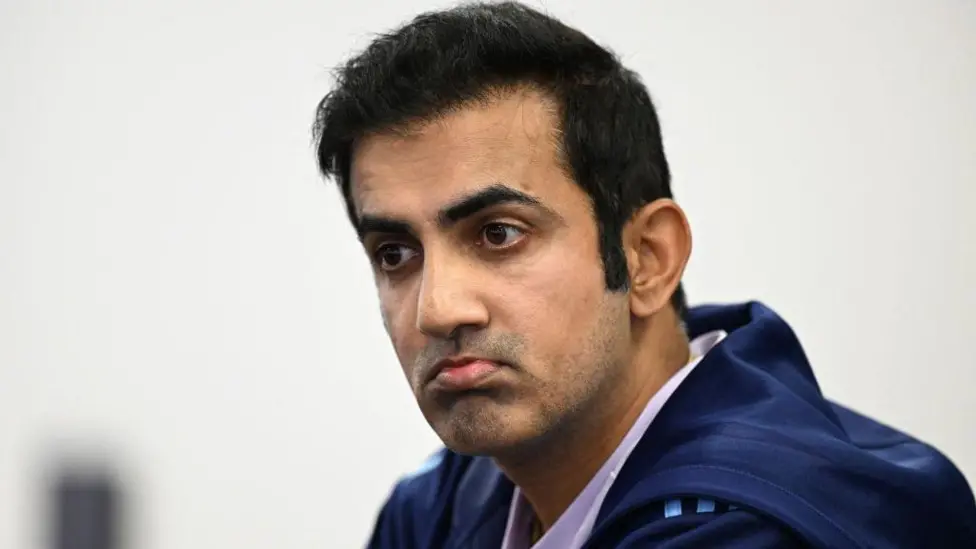
Cricket and Conflict: Why Gautam Gambhir Says ‘No India-Pakistan Matches’ After Kashmir Attack
Gambhir: “Absolutely not” to India-Pakistan cricket in wake of Kashmir killings
In the wake of renewed bloodshed in Indian-administered Kashmir, former Indian cricketer and current men’s team coach Gautam Gambhir has taken a firm stance: there should be no cricket matches between India and Pakistan until tensions are resolved. His comments come at a time when political and military hostilities between the two nations have surged following a devastating attack in Pahalgam on April 22 that left 26 civilians dead.
While the Indian government has squarely pointed the finger at Pakistan for supporting the militants responsible, Islamabad has categorically denied any involvement. The reverberations from this deadly assault have been felt far beyond politics, shaking the very foundation of cultural and sporting exchanges between the nuclear neighbours.
And cricket, as it so often does, finds itself at the centre of a geopolitical storm.
No Room for Cricket Amid National Tragedy, Says Gambhir
Speaking earlier this week, Gambhir — who also served as a member of parliament for the ruling Bharatiya Janata Party — didn’t mince words.
“Absolutely not,” he said when asked if India should continue playing cricket against Pakistan under the current circumstances. “There should not be anything between India and Pakistan until the situation is resolved.”
For Gambhir, who’s never shied away from blending sports with nationalistic sentiment, the issue is personal and deeply emotional. “I have said this before also: no cricket match or Bollywood or any other interaction is more important than the life of Indian soldiers and Indian citizens,” he added. “Matches will keep happening, movies will be made, singers will continue to perform, but nothing comes close to losing a loved one in your family.”
His comments came just before India launched a series of retaliatory airstrikes in Pakistan-administered Kashmir in what was reportedly dubbed Operation Sindoor. Pakistan claims those strikes killed 26 people and left dozens injured, while India has also reported fatalities from Pakistani shelling across the Line of Control.
The Ongoing Ice Age in Bilateral Cricket
Historically, India and Pakistan have only met on cricket fields during multi-nation tournaments in recent years, thanks to the frigid political relations between New Delhi and Islamabad. The two last played a bilateral series in 2013, when Pakistan toured India. Since then, all encounters have been limited to global events like the ICC World Cup, T20 World Cup, or the Champions Trophy — and even those matchups are accompanied by intense security and heightened diplomatic tension.
Their most recent meeting came in February during the Champions Trophy in Dubai, a match that drew millions of viewers across both nations but was only possible on neutral ground due to India’s refusal to travel to Pakistan.
As things stand, the two are set to face each other again later this year at the ICC Women’s World Cup, a match that now seems less certain by the day.
More Than a Game: The Commercial and Cultural Stakes
India-Pakistan matches have long been the jewel in the crown for global cricket broadcasters. Whether it’s in Melbourne or Manchester, Dubai or Delhi, the rivalry draws viewership in the hundreds of millions and commands premium advertising rates. The matches are held in the largest venues, broadcast in multiple languages, and inevitably become cultural events that transcend sport.
However, as Gambhir noted, such fixtures pale in significance when national security and human lives are at stake.
That sentiment was echoed by many on Indian social media, where users called for a blanket suspension of any form of cultural or sporting exchange with Pakistan. The Indian government, too, has followed a hard line since the April 22 attack. New Delhi has suspended key water-sharing agreements, blocked Pakistani aircraft from using its airspace, and even restricted Pakistani artists on digital platforms — with several Instagram accounts belonging to Pakistani celebrities being taken down in India.
Sport as a Diplomatic Tool—or a Casualty of Diplomacy?
While sport is often hailed as a bridge between nations, in South Asia, it has frequently become collateral damage in the larger diplomatic narrative. Cricket, given its immense popularity and symbolic weight in both countries, is especially vulnerable.
At times, cricket has also been used as a diplomatic icebreaker. The 2004 India tour of Pakistan and the infamous 2011 World Cup semi-final in Mohali, which was attended by both nations’ prime ministers, are cases in point. But such moments have become increasingly rare in recent years.
The political winds are now firmly against any such soft diplomacy. With the escalation following Operation Sindoor and the subsequent military skirmishes, the chances of cricket resuming any normalcy between the two sides have all but evaporated for the foreseeable future.
Domestic Cricket Caught in the Crossfire
The impact of the broader conflict has already been felt in domestic cricket circuits. The IPL fixture between Punjab Kings and Delhi Capitals, scheduled for Thursday in Dharamsala, has been overshadowed by the conflict. Several flights to the nearby Gaggal Airport were reportedly cancelled on Wednesday, following directives from Indian aviation authorities, citing security concerns.
Meanwhile, in Rawalpindi, the Pakistan Super League has chosen to press on with its scheduled matches — a sign of defiance, or perhaps an effort to maintain a semblance of normalcy amid rising tensions.
But even these domestic tournaments are not immune to the sentiment echoing from both sides of the border. There’s growing speculation that future participation of foreign players in either the IPL or PSL could be affected if the situation continues to deteriorate.
The Road Ahead: No Easy Solutions
For all the passion and prestige that an India-Pakistan cricket match brings, the reality is that the sport exists in a world deeply influenced by politics. And when lives are lost, as they were in the Pahalgam attack, calls for restraint, boycott, or even retaliation quickly drown out arguments in favour of continuing sports ties.
Gautam Gambhir’s firm rejection of any cricketing engagement with Pakistan is not an isolated voice — it reflects a growing public mood in India, one that prioritises national pride and security over sporting spectacle.
Whether the governments of both nations choose to soften their stances or harden them further remains to be seen. But for now, the message from India’s cricket coach is clear: until peace returns, cricket with Pakistan can wait.















































































































There are no comments yet. Be the first to comment!